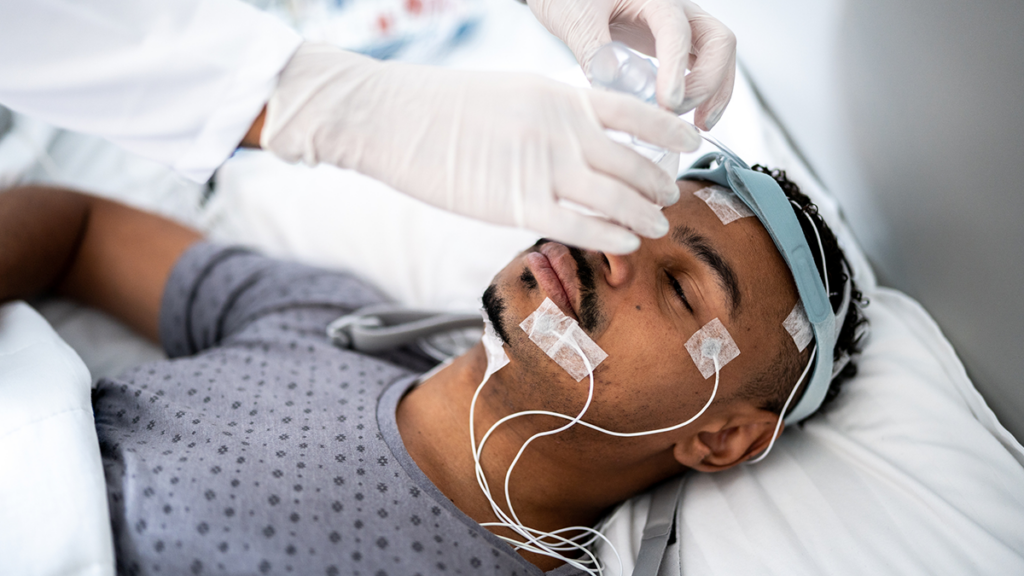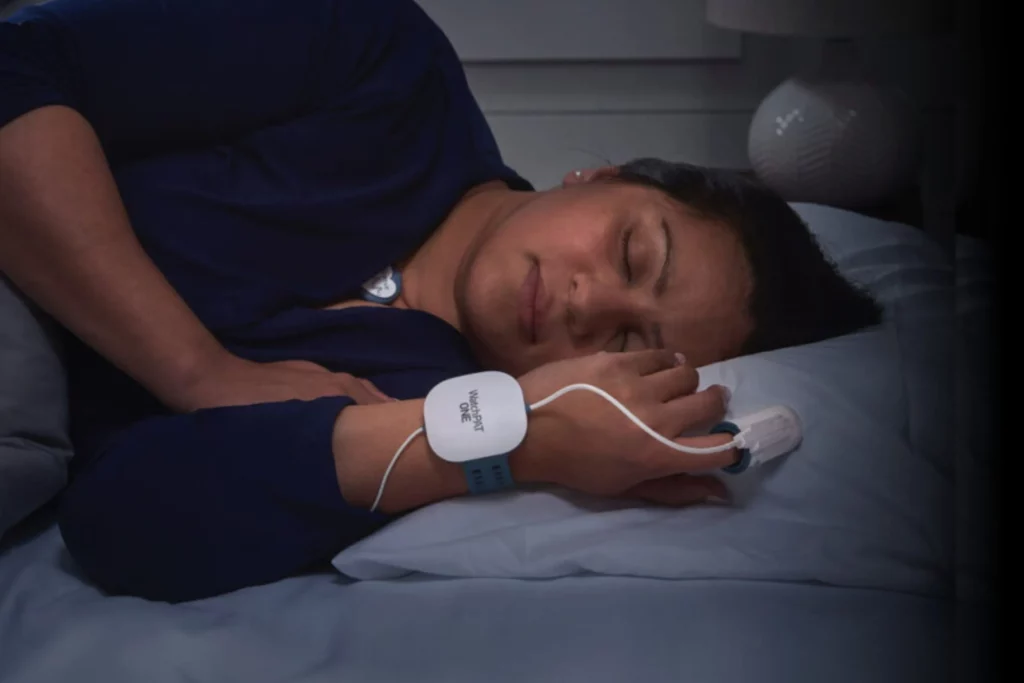Sleep apnea is a common sleep disorder that affects millions of people worldwide. It is characterized by pauses in breathing during sleep, which can lead to fragmented and poor-quality sleep. If left untreated, sleep apnea can have serious health consequences, including increased risk of cardiovascular disease, stroke, and diabetes. The first step in diagnosing sleep apnea involves undergoing sleep apnea tests. These tests help physicians determine the severity and type of sleep apnea, which then guides the appropriate treatment plan. However, the cost of sleep apnea tests can vary widely depending on various factors. In this article, we will delve into the cost breakdown of sleep apnea tests, explore the different types of tests available, discuss factors that influence the cost, and provide tips on how to save on sleep apnea testing.
Understanding Sleep Apnea
Before diving into the cost breakdown, let’s first understand what sleep apnea is. Sleep apnea is a potentially serious sleep disorder that causes breathing to repeatedly stop and start during sleep. The three main types of sleep apnea are obstructive sleep apnea, central sleep apnea, and complex sleep apnea syndrome.
However, the cost of sleep apnea test can vary depending on location, type of test, and insurance coverage. By understanding the factors that influence the cost and exploring available cost-saving options, individuals can take steps towards affordable sleep apnea testing.
Obstructive sleep apnea is the most common form and occurs when the muscles in the throat fail to keep the airway open, resulting in breathing pauses and a decrease in oxygen levels. This can lead to fragmented sleep and a myriad of symptoms, including loud snoring, gasping for air during sleep, morning headaches, excessive daytime sleepiness, and difficulty concentrating.
Central sleep apnea, on the other hand, is caused by a failure of the brain to transmit proper breathing signals to the muscles. This results in a lack of effort to breathe and can also lead to interrupted sleep and similar symptoms as obstructive sleep apnea.
Complex sleep apnea syndrome is a combination of both obstructive and central sleep apnea. This condition can be particularly challenging to diagnose and treat, as it requires a comprehensive understanding of both types of sleep apnea.
What is Sleep Apnea?
Sleep apnea is a disorder that affects breathing during sleep. Individuals with sleep apnea experience interruptions in their breathing, which can last from a few seconds to minutes and may occur multiple times throughout the night. These interruptions, or apneas, can lead to reduced oxygen levels in the blood and fragmented sleep.
Common symptoms of sleep apnea include loud snoring, gasping for air during sleep, morning headaches, excessive daytime sleepiness, and difficulty concentrating. These symptoms can significantly impact a person’s quality of life, affecting their energy levels, cognitive function, and overall well-being.

Symptoms and Risks of Sleep Apnea
Sleep apnea can manifest in various symptoms that can negatively impact a person’s life. In addition to loud snoring and gasping for air during sleep, individuals with sleep apnea may experience excessive daytime sleepiness, morning headaches, dry mouth, irritability, and difficulty staying asleep throughout the night.
It is important to note that sleep apnea is not just a nuisance; it can have significant health consequences if left untreated. Research has shown that sleep apnea is associated with an increased risk of certain health conditions, such as high blood pressure, heart disease, stroke, diabetes, and obesity. These risks emphasize the importance of seeking proper diagnosis and treatment for sleep apnea.
By addressing sleep apnea promptly, individuals can not only improve their sleep quality but also reduce the risks of developing these serious health conditions. If you suspect that you or a loved one may have sleep apnea, it is crucial to consult with a healthcare professional who specializes in sleep disorders for an accurate diagnosis and personalized treatment plan.
Different Types of Sleep Apnea Tests
There are different types of sleep apnea tests available to diagnose and assess the severity of the condition. These tests can be conducted either at home or in a sleep lab, depending on the individual’s specific needs and circumstances. Let’s explore the various options:
Home Sleep Apnea Tests
Home sleep apnea tests, also known as portable sleep monitors, are devices that allow individuals to undergo sleep apnea testing in the comfort of their own homes. These tests are typically more convenient and cost-effective compared to in-lab sleep studies.
When using a home sleep apnea test, individuals are provided with a small device that they wear while sleeping. This device measures various physiological parameters during sleep, such as breathing patterns, oxygen levels, and heart rate. The data recorded by the device is then analyzed by a sleep specialist to determine if sleep apnea is present and to what extent.
One of the advantages of home sleep apnea tests is that individuals can sleep in their natural environment, which may provide a more accurate representation of their sleep patterns. Additionally, these tests allow for greater flexibility, as individuals can choose the night that is most convenient for them to conduct the test.
In-Lab Sleep Studies
In-lab sleep studies, also known as polysomnography, are conducted in specialized sleep labs to monitor a person’s sleep patterns and diagnose sleep disorders accurately. These studies provide a comprehensive assessment of an individual’s sleep quality and the presence of sleep apnea.
During an in-lab sleep study, individuals spend a night in a sleep lab where trained technicians monitor various physiological parameters. These include brain waves, eye movements, muscle activity, heart rate, and breathing patterns. The data collected during the study is then analyzed by sleep specialists to provide a detailed evaluation of sleep architecture and the severity of sleep apnea. Find more about muscle activity on https://www.ncbi.nlm.nih.gov/books/NBK537140/
In-lab sleep studies are typically recommended for individuals with complex medical conditions, suspected sleep disorders other than sleep apnea, or those who require additional monitoring and evaluation. The controlled environment of the sleep lab allows for precise measurements and accurate diagnosis.
Nocturnal Polysomnography
Nocturnal polysomnography is a specific type of in-lab sleep study that involves a comprehensive assessment of sleep architecture and the presence of sleep apnea. This advanced test provides detailed information about an individual’s sleep patterns and helps in determining the most appropriate treatment options.
During a nocturnal polysomnography, individuals are connected to various sensors and electrodes to monitor brain activity, eye movements, muscle tone, respiratory effort, oxygen levels, and other physiological parameters. This extensive evaluation allows sleep specialists to analyze the data and provide a thorough assessment of sleep quality and the severity of sleep apnea.
Nocturnal polysomnography is particularly useful for individuals with complex sleep disorders or those who require a more in-depth analysis of their sleep patterns. By understanding the specific characteristics of an individual’s sleep apnea, healthcare professionals can tailor treatment plans to meet their unique needs.
Factors Influencing the Cost of Sleep Apnea Tests
The cost of sleep apnea tests can vary depending on several factors. Here are some key factors that influence the cost:
Location and Facility
The cost of sleep apnea tests can vary depending on the location and facility where the tests are conducted. In general, sleep apnea tests tend to be more expensive in urban areas and specialized sleep centers compared to rural areas or general medical facilities. It is essential to consider the available options and associated costs when choosing where to undergo sleep apnea testing.
Type of Test
The type of sleep apnea test chosen can also impact the overall cost. Home sleep apnea tests are typically more affordable compared to in-lab sleep studies since they do not require overnight stays at a sleep center. On the other hand, in-lab sleep studies involve additional expenses such as facility fees, equipment usage fees, and professional fees for the technicians and physicians involved in the assessment.
Read about sleep study at: Sleep Studies in Adelaide
Insurance Coverage
Insurance coverage plays a significant role in determining the out-of-pocket costs for sleep apnea tests. Some insurance plans may cover a portion or the full cost of certain sleep apnea tests, while others may require prior authorization or have specific criteria for coverage. It is crucial to check with your insurance provider to understand the extent of coverage and any additional requirements.
Average Cost of Sleep Apnea Tests
As mentioned earlier, the cost of sleep apnea tests can vary widely depending on several factors. Here is an overview of the average cost for different types of sleep apnea tests:
Home Sleep Apnea Test Cost
The cost of home sleep apnea tests typically ranges from $150 to $500, depending on the specific device used, the duration of the test, and additional services provided. It is important to note that insurance coverage may significantly reduce the out-of-pocket cost for home sleep apnea tests, hence the importance of checking with your insurance provider.
In-Lab Sleep Study Cost
The cost of in-lab sleep studies, including nocturnal polysomnography, can range from $1,000 to $3,000 or more. This higher cost is due to the comprehensive nature of the test, the specialized equipment and facilities required, and the involvement of trained sleep specialists. Insurance coverage can help offset a portion of the cost for in-lab sleep studies, but it is essential to check with your insurance provider to determine the extent of coverage.
How to Save on Sleep Apnea Tests
Considering the potential costs involved, many individuals may seek ways to save on sleep apnea tests. Here are a few strategies that may help reduce the financial burden:
Health Insurance and Medicare
If you have health insurance or Medicare coverage, it is crucial to explore the details of your plan and determine the coverage for sleep apnea testing. Some plans may cover a significant portion of the cost, while others may require prior authorization or have specific criteria for coverage. Contact your insurance provider or Medicare to understand the coverage and any additional requirements. Click here to read more about medicare.
Patient Assistance Programs
Some companies and organizations offer patient assistance programs that can help individuals with financial difficulties access sleep apnea tests at reduced costs or even free of charge. These programs may have specific eligibility criteria, so it is important to inquire and explore options that may be available to you.

Choosing the Right Test for You
Working closely with your healthcare provider can help determine the most suitable sleep apnea test for your individual needs. It is essential to consider factors such as test accuracy, convenience, and cost when making this decision. Discussing the potential costs and available options with your healthcare provider can help ensure a cost-effective approach to sleep apnea diagnosis and treatment.

Image source: exampleimage.com
Conclusion
Sleep apnea is a prevalent sleep disorder that requires accurate diagnosis to establish the most suitable treatment plan. Sleep apnea tests, whether conducted at home or in a sleep lab, play a crucial role in this process. Ultimately, investing in sleep apnea tests is an investment in overall health and well-being, as timely diagnosis and treatment can significantly improve sleep quality and reduce the associated health risks.
